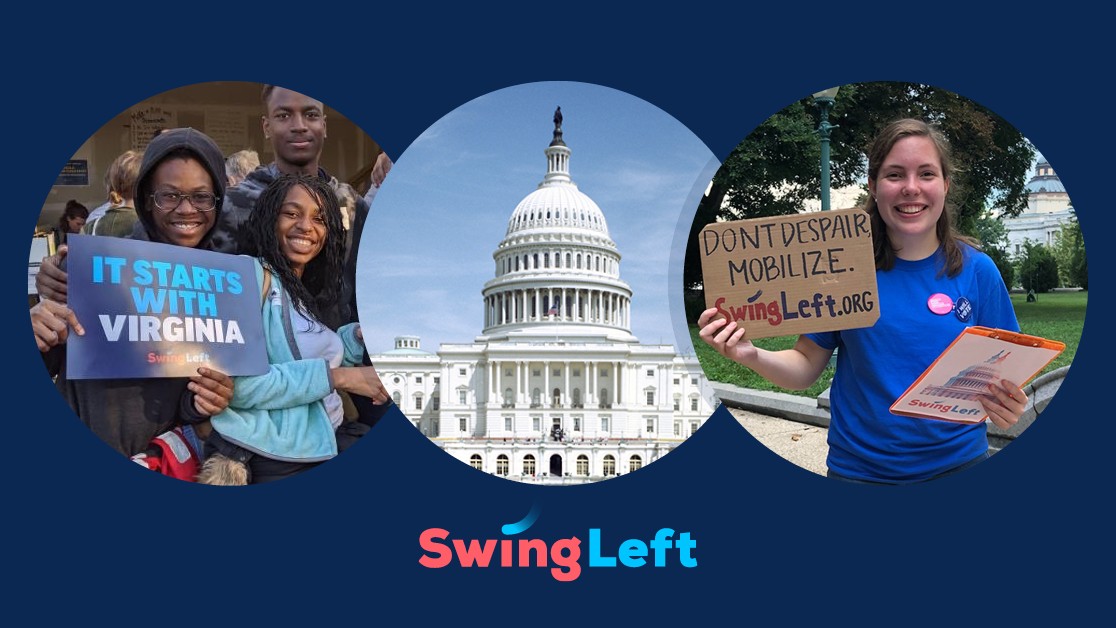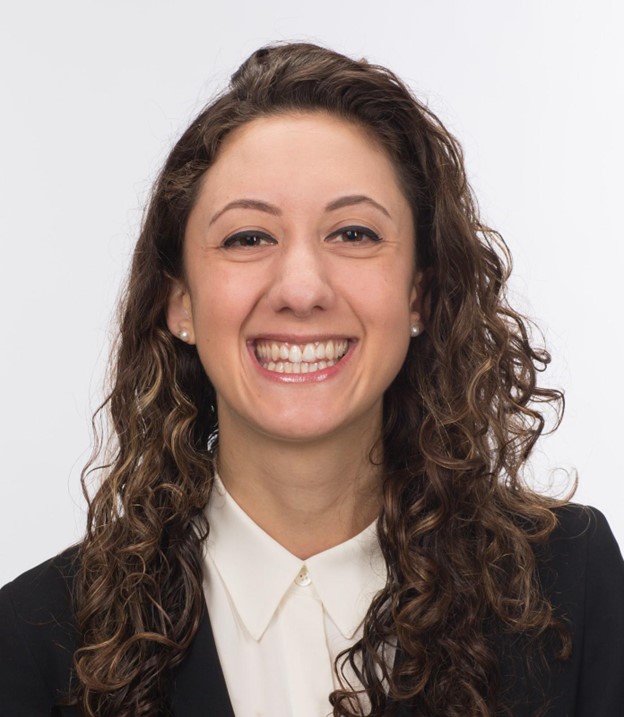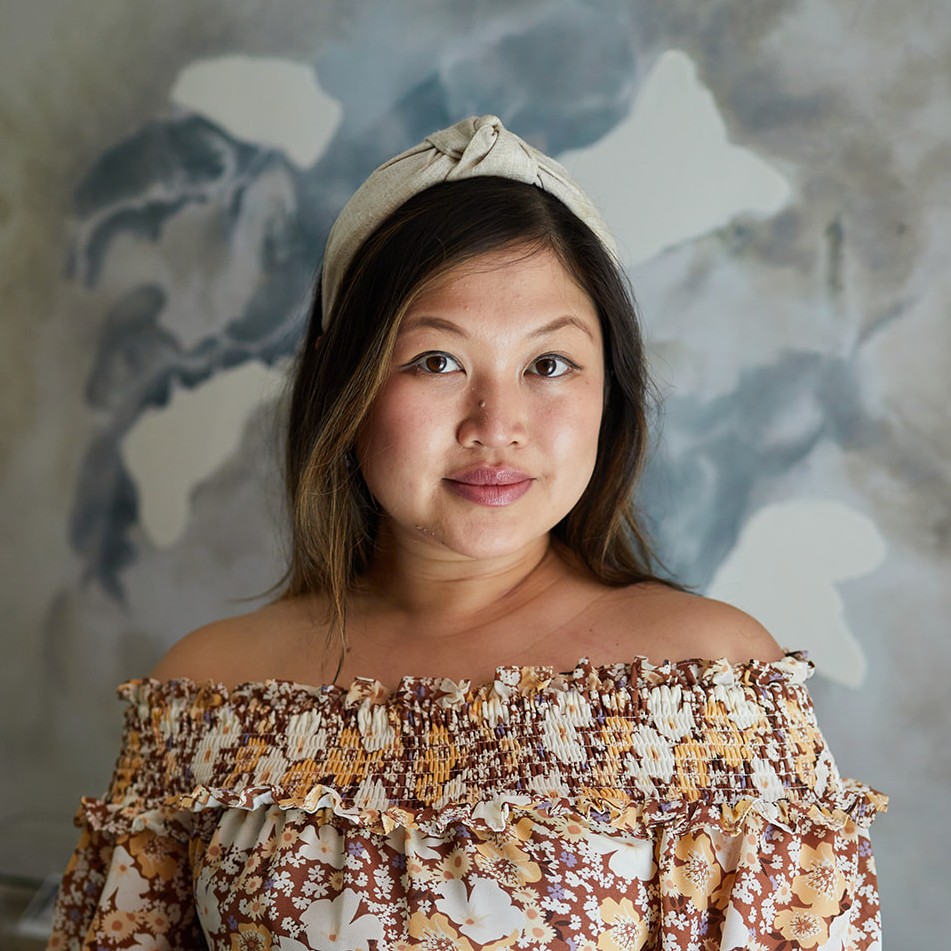Why the 2022 Midterm Elections Are So Critical
As we blaze through a highly charged midterm election season, Swing Left Executive Director Yasmin Radjy breaks down why this year’s midterms are more important than ever and highlights rising stars who are really fighting for women’s rights.


It’s hard to think of a moment in American history like this one. From the continued existential challenge to our democracy to the Supreme Court's direct attack on the reproductive freedom and privacy rights of women, the challenges we're facing are impacting people’s lives in real, material ways.
So, how do we jump in and make a difference at a moment of crisis? Yasmin Radjy, executive director of Swing Left, a progressive political organization, says driving to the nearest swing district or high impact state can make all the difference.
We're now deep in the midterm primaries, which kicked off in March and continue into September. August is among the busiest month, with a total of 15 critical primaries, including the U.S. Senate battleground states of Alaska, Arizona, Wisconsin, and Florida. But according to FairVote, primaries do not get the same love as the general elections. Even general elections in non-presidential years, don't drawn enough attention: About 60 percent of the eligible population votes during presidential election years, and about 40 percent during midterm elections.
Radjy is raising alarm bells on a number of women’s issues at stake in the midterms—economic equality, immigration, racial justice, child tax credit, and, last but not least, sexual and reproductive rights. Radjy most recently served in public outreach for the Biden-Harris administration, but national grassroots activism dominates her resumé. (She also served the former national political director of the Planned Parenthood Action Fund.)
She points to the election of Congresswoman Lauren Underwood, based in the suburbs of Illinois’ 14th District, as an example of the work Swing Left and its more than 1 million grassroots members can do. “She’s an important voice for decreasing Black maternal mortality rates,” says Radjy. “Volunteers played a key role—we heard story after story of a sea of volunteers mobilizing at the grassroots.” Hundreds of Swing Left volunteers drove in from Chicago, and it was an extremely close election. Today, the registered nurse-turned-congresswoman has secured funding for services like telehealth and electronic health record systems to ensure low-income people and immigrants receive access to quality care.
In Radjy’s current gig, she's tasked with repeating that success—organizing and driving volunteer energy at the grassroots to support Democrats in competitive races, including city and state elections. Here, she highlights what’s at stake this year and what we can do about it as we blaze through one of the most highly charged midterms ever.

Marie Claire: Why are this year’s midterms more critical than ever?
Yasmine Radjy: Extremist Republicans are working in overdrive to destroy our fundamental freedoms—from rolling back our reproductive rights to undermining free and fair elections. The midterms will be a critical moment in determining what path we follow as a country, and we have two options: We can either sit back and see these rights further eroded, or we can keep fighting like hell to win the midterms.
Get exclusive access to fashion and beauty trends, hot-off-the-press celebrity news, and more.
I recently left my job in the Biden administration supporting our nation’s economic recovery to lead Swing Left because I saw first-hand that the greatest barrier to getting big, bold things done comes down to math. We don’t have enough Democrats in power at the state and federal level, and we don’t have enough time. So Swing Left works to connect volunteers and donors to the competitive races where their money and time can have the greatest impact on winning elections. But to secure those critical wins, we need as many people as possible knocking doors, making calls, and writing letters to help get others to vote in key Swing Districts nationwide.
MC: How will abortion access shape the November elections?
YR: Abortion will be a key issue in the midterms. As the former national political director at Planned Parenthood Action Fund, I’ve seen first-hand what the polls confirm: The overwhelming majority of Americans—and yes, that includes Republicans and Independents—support the right to a safe, legal abortion for anyone who can become pregnant, including many women, non-binary and intersex people, and trans men. But despite that overwhelming support, right-wing extremists have fought to ban abortion before most people even know they’re pregnant and to make abortion inaccessible—especially to low income women and women of color—in almost half the country. And that’s long before this latest SCOTUS ruling. And, in case there was any doubt this is all about controlling people’s bodies: Republicans want to restrict medication abortion from being mailed across state lines, and 195 Republicans in the U.S. House voted against access to birth control just two weeks ago.
The extreme overreach by so many Republicans who are enacting what essentially amounts to sweeping abortion bans is cynical and political, and it will not go unnoticed and unpunished in November. At Swing Left, our volunteers are angry, and taking actions in numbers exceeding 2018, from canvassing to letter writing to donating to Democrats running in the most competitive races up and down the ballot.
MC: What are the top three to five races to watch in the 2022 midterms? Who is really fighting for women?
YR: There are a number of important races to get involved in this year. You can go to swingleft.org to see all the races we’re supporting, but a few of the amazing candidates include:
Cheri Beasley is running for Senate in North Caroline. She's a mom, former public defender, judge, and the first Black woman to serve as Chief Justice of the North Carolina Supreme Court. Not only that, but she’s a former Planned Parenthood patient, so she knows first-hand the importance of fighting for reproductive health care access. The path to expanding the Democratic Senate majority, ending the filibuster, repealing the racist Hyde amendment, and codifying abortion access into law runs through North Carolina.
Gretchen Whitmer, the current Governor of Michigan, is running for re-election and has been at the frontlines of protecting abortion rights in a state where Republicans control the legislature. And for her, these issues are personal: She’s the mom of two young women navigating what it means to be of reproductive age in a post-Roe America.
Michelle Vallejo, who is running for Congress in South Texas (TX-15) on a bold progressive vision, is a business and community leader whose parents immigrated from Mexico as children. As someone from a family of farm workers and business owners, Michelle’s campaign is focused on fighting for economic opportunity for all—and that includes ensuring reproductive health care is accessible to all, regardless of income level.
Finally, I’m also closely watching Emilia Sykes, who is running for Congress in Ohio in a district where I actually worked as an organizer for Obama back in 2008 (OH-13). Her district includes the former rubber and glass capitals of the world, and I’ve seen first-hand the importance of electing a champion for workers and the economy to represent an area our economy left behind decades ago. She’s a current State Representative and the former Minority Leader of the Ohio House, and was awarded the EMILY’s List Rising Star Award in 2020.
MC: What does your organization do to engage voters?
YR: Most people live within 50 miles of a swing district! This is true even in blue states. Swing Left was founded in 2017 to make it easy for volunteers and donors anywhere to maximize their impact and help Democrats win key races up and down the ballot. This year, we’re supporting races in 29 states, and some of the most important races Democrats need to win to maintain control of Congress this year are in deep blue states like California, New York, and Illinois.
You can find your nearest swing district at swingleft.org/targets.
MC: How can anyone get involved at the grassroots level, even if they live in a consistently blue or red state?
YR: Anyone can get involved, not just by voting, but also by volunteering to help get others to vote, and donating to competitive candidates.
We’ve done the research to make it easy. You go to www.swingleft.org, type in your zip code, and we’ll show you high-impact ways to make a difference in key elections. That could mean connecting you to a local group, giving you tools to write letters to voters in those districts as part of The Big Send campaign, informing you of upcoming events to knock on doors, or helping you start a virtual fundraiser to support key candidates and local civic organizations working to protect democracy. Whether you can give $5 or $5000, 2 hours or 200 hours, we need all hands on deck to win the fights ahead.
MC: How does motherhood and your family’s immigrant experience fuel your mission at Swing Left and its fight for reproductive rights?
YR: My parents fled Iran for the freedom to vote in fair elections, control your own body, and the to speak out when politicians are failing us. I've seen first-hand that those freedoms aren’t always accessible to all—and I got involved in politics to fix that. Today, in the face of the erosion of rights that existed when my parents first moved here—including the right to a legal abortion—I’m more committed than ever to fighting for this country to live up to its promise.
As a new mom of a four-month-old, time feels more precious than ever. That’s why I joined Swing Left—because I knew it was a place where every hour of my day would be focused on working on the most decisive elections across the country. We owe it to the next generation, who deserve all the freedoms this country promises.

Tanya Benedicto Klich is Senior Editor at Marie Claire where she manages the Money & Career section. Over the course of her 10+ years as a journalist she has overseen the coverage of female founders, funders, executives, innovators and more. Tanya was previously a Lifestyle Reporter for Forbes, where she worked at the ForbesWomen and Forbes Lifestyle verticals. She was also a Features Editor at Entrepreneur Magazine, and a former on-air reporter for NY1 News. Tanya is also a graduate of Columbia University Graduate School of Journalism where she specialized in business & economic journalism, and is an adjunct professor at the NYU Arthur L. Carter Journalism Institute. She lives in Brooklyn with her husband and two little sons. Follow her on Twitter: @TanyaKlich